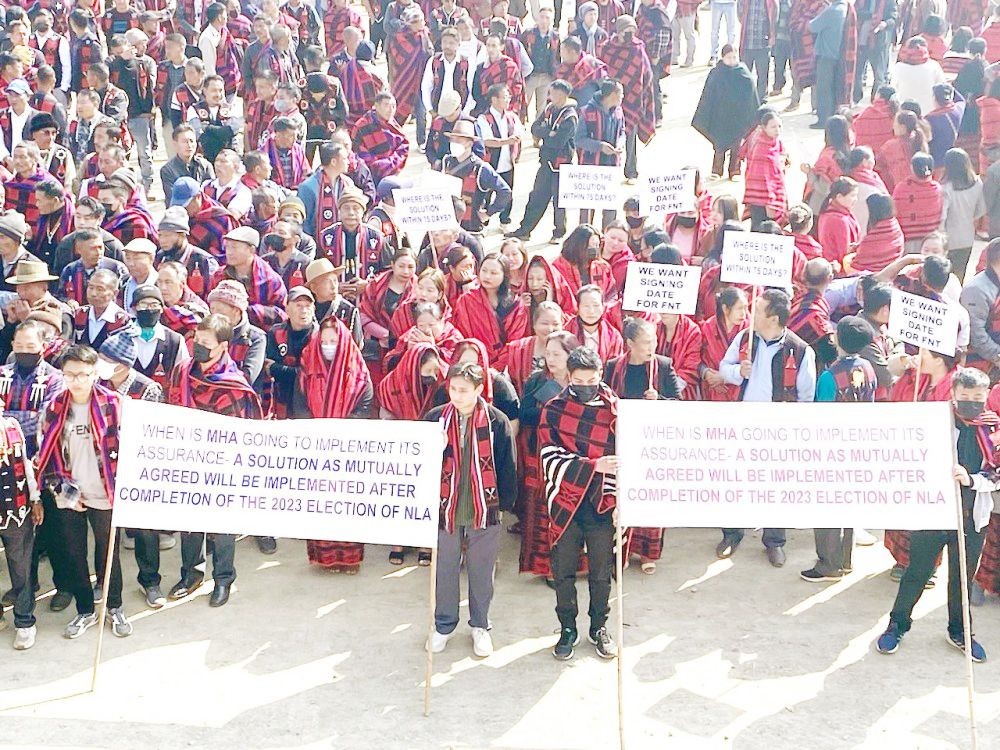Pubic rally in protest against the delay in settlement of Frontier Nagaland Territory in Tuensang town on February 9. (Morung File Photo)

Morung Express News
Dimapur | February 14
The Eastern Nagaland Peoples Organisation (ENPO) along with other bodies from Eastern Nagaland today rejected the draft proposal for creation of a regional/autonomous council out forth by the Centre.
This decision comes following a joint consultative meeting with representatives from various bodies from Eastern Nagaland held at the Tourist Lodge, Dimapur on February 14.
The meeting, reportedly convened by Eastern Nagaland Gazette Officers Association, had in attendance members from Eastern Nagaland Women's Organisation (ENWO), Eastern Naga Students' Federation (ENSF), apex tribal bodies along with the ENPO and the Eastern Nagaland Legislators Union (ENLU).
Talking to the The Morung Express after the meeting, ENLU Secretary, Lima Onen said the draft proposal had been given by the Ministry of Home Affairs (MHA), Government of India to the State Government. The contents of the draft it seems to look as though it would be a regional/autonomous council, he said. As such, at the end, the meeting proposed to reject the draft proposal in its current form, he added.
Going back to the origins of the demand for Statehood, Chang reiterated that in 2011 the State Government had made the exact same proposal for an autonomous council. Following a 2015 rally, the ENPO had then rejected the said proposal and since then, the issue has remained unresolved, he said.
We had rejected the MHA’s proposal as per our earlier demands for complete statehood, Chang maintained. At the same time, the ENLU Secretary said that the main negotiating team of the ENPO was yet to receive the draft proposal from the MHA.
Queried on why the centre apparently bypassed the ENPO and first shared the contents of the draft proposal with the State Government, he opined that it is a tri-partite negotiation involving all three stakeholders. Maybe the Centre had thought best to reach out to the State Government first as the outcome would affect State’s territory, Chang postulated.
In relation to the contents of the proposal, he also mentioned that the main contention lies in the creation of a regional council in line with Article 371 (A) sub-clause (d). It states, “There shall be established a regional council for the Tuensang district consisting of thirty-five members and the Governor shall in his discretion make rules…”






